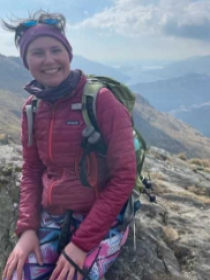Strathclyde Chancellor's Fellow, Work, Employment and Organisation

I am a Chancellor’s Fellow (CF) in the Scottish Centre for Employment Research (SCER) based in the Work Employment and Organisations (WEO) department of Strathclyde Business School. After, and alongside working in health and social care, I completed my undergraduate degree in Disability Studies and Professional Practice Studies at Northumbria University, and a master’s in Health and Social Science Research and PhD in medical sociology at Newcastle University in the medical school.
My research focuses on the subjective experiences of health at work, employee perceptions of their own health, other workplace stakeholder perspectives and responses to ill-health and disability at work, and historical, cultural and political perspectives, debates and depictions of health in relation to work. This means answering questions like ‘what assumptions are present in organisations regarding ill-health?’, ‘who is the workplace designed for?’ and ‘how do people manage perceived differences between themselves/their reports/their colleagues and their idea of a ‘perfect’ employee?’ This work has included reflection on Higher Education employers such as Strathclyde, as well as other public and private sector organisations.
The Chancellor’s fellow scheme has enabled me to develop a strong researcher profile in a department of experts, now colleagues, that I have admired and wanted to work with since completing my PhD. Because the CF contracts ringfence research time I have been able to form strong collaborations both within and outside of my host centre and department, design and deliver bespoke workplace consultancy offers alongside the traditional academic activities of publishing, applying for grants and teaching.
The departmental expertise of WEO was not the only draw to Strathclyde. As an institution it is ambitious, offers extensive opportunities for progression, values being people-oriented and has a commitment to being socially progressive. Recent internal knowledge exchange funding opportunities have embodied these university attributes, with key criteria for success being partnership, collaboration and focusing on equality, diversity and inclusion.
Over the course of my fellowship, I hope to continue drawing on the commitment and values of the university to inform the nature and desired impact of my research, knowledge exchange and citizenship activities within Strathclyde – contributing to the knowledge exchange economy necessary for useful learning.